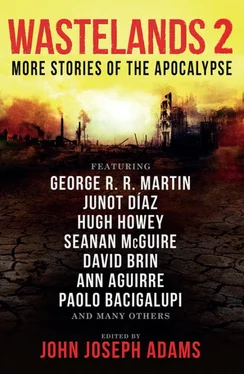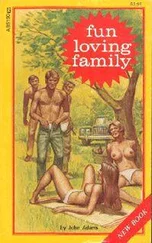(Strange, the things you miss.)
“Why were you skywatching, before? What were you looking for?”
After too long she says, “What makes you think I was looking for something?”
Bullshit. She’d been looking for something since the day I staggered through the woods delirious from hunger and half-sick from my own smell, and she appeared out of nowhere to take me back to the hollow trunk where she had made shelter from the grimy light.
“Don’t lie to me,” I say. I hardly recognize my own voice, like the dark distorted it.
But I had listened to the news back when Point Zero was protesting. I knew that if you looked up at the night sky you saw Xibalba Be, the Dark Road that the Mayans had seen, the biggest clock humanity could set by. Someone from the think tank had gone on the news and explained the galactic alignment with a computer graphic. The planets had already lined up like a string of beads; nobody knew if anything would happen before they split, but you had to think that something could.
I wait for her to call me a liar; to ask about her book. I count to ten. To ten. To ten. She’s so quiet I can hardly hear her breathing.
I keep my eyes squeezed shut (you get vertigo at night trying to look around with no light anywhere), but there are little white flecks in my vision, a tiny constellation of angry stars.
* * *
It’s the dark that does you in. It’s the dark that slides over you worse than the ash or the wind, because you know that all the ways to keep back the dark are gone, that when your lighter is gone there will be no more fire without flint and sticks and admitting that there’s no hope for anything better.
The dark swallows up the new geography that’s been shaken out over the old one, swallows up everything but you (she’s sleeping next to you, propped up against the cave wall, but the cave is so small you could reach out and slide your hand into her pocket), and you wake from nothing and know that the dark has pooled like oil in your ears and your nostrils, and even with your eyes squeezed shut you know it’s stained your vision until you can’t see, that you’re walking in circles as the ground under you is crumbling, that with the next step you’re going to fall, and then you wake and open your eyes, gasping, your hands scraping at the roof of your mouth to claw the darkness out, and she’s leaning over you, marking on your body with pencil where she’ll carve away the good meat, and when you scream at her the darkness slides into your stomach, and you wake to the sooty sky and her silhouette already standing outside the cave, untouched and impenetrable, and as you sit up something coils around your lungs and squeezes tight.
* * *
Point Zero knew they had been abandoned; they knew that whatever happened, their lives were over, and it was only left to decide how they would go out.
They didn’t want to damage the seed vault, no matter what. They never had. Of all the doomsday propositions Point Zero dismissed, the swift extinction of nature was not one. (They cheered when they heard that the animals were being evacuated from Svalbard.)
Resolute, they wrote a new broadcast, where they would announce additional targets; they’d force oil fields to stop production, they’d frighten the world into a worldwide ceasefire. They would sit in the Ops Room with Sequoia and slowly starve out, to buy enough time for the world to come to its senses.
“These wondrous days you’re waiting for don’t come from prayer, but from deed,” they wrote. “They are the provenance of those who care enough to make sacrifices for a better world. We are your caretakers; we will craft these days for all of you.”
(Hunger was setting in; they were getting evangelical.)
They didn’t know about the room in the basement of the Ames with maps tacked to it, with pinpoints and predictions from the Darkroad Project about how a new world could be carved from the old one.
Point Zero didn’t know there were plans that had already been made.
* * *
The next day is dark and heavy, heavier than yesterday; I can’t breathe (she had stuffed soot down my lungs overnight) and with every step I can feel her staring at my back like she knows something I don’t—
I turn on her.
“Is this about your fucking book?”
She doesn’t say anything, just gives me that hard, closed-off look I’m getting pretty sick of.
“If you want it back,” I snap, “you can ask for it.”
“Why did you take it?” she asks, like there’s an answer, and all I can think of is, “It’s a stupid thing to carry,” which is the truth but it isn’t an answer.
But she doesn’t question me, just says, “You can’t do that,” so calm it stings, and I sink an inch into the mud and I hate her for pushing me like this. I hate her and my hand flies at her and as she ducks I scream, “I’ll do what the fuck I want to you!”
She staggers a few paces back. Then she looks at me for a long time, and I feel like I’ve sunk into the ground up to my knees. I make fists at my sides.
Finally she says, “I’d like it back.”
The last fucking thing I need from her is that tone, that tone like she’s disappointed in me, like I’m the one who’s not making sense.
I yank the book out of my jacket and throw it on the ground at my feet. It hits the mud with a wet thwack, hovers for a second before it starts to sink.
She never looks at the book; never looks away from me.
I step on it as I turn around, just for the satisfaction of forcing it down, and then I keep walking.
Eventually, I hear her footsteps behind me. When I look back at her later, there’s no mud on her; she’s finally wised up about that worthless thing.
There’s no need for it. Not like the past is going to change.
* * *
After the second broadcast from Point Zero that stated their intentions and put a dozen cities under the gun, there were stampedes from the cities into the countryside. There were ceasefires in war zones as countries pulled their troops back to handle the home fronts. Churches were overrun with congregations hoping to make amends before Point Zero pushed the button.
No one was thinking any more about an empty Research Center; it was nominally under guard, but since Point Zero had ignored it, so had the police. All five members of the Darkroad Project slipped in through a side door without even being seen.
As world governments argued about how to protect against the threat posed by Sequoia’s nuclear grid, as Point Zero’s broadcast was picked up by news stations with panicking anchors, as people rioted over canned food in grocery stores, the Darkroad Project stood at the control console of Pleiades and executed the program they had been working on for two years.
Xibalba.exe ran flawlessly; they knew as soon as the earthquake hit and the room buckled.
(They were too close to a fault line to expect to survive; but a true scientist must accept the risks of the experiment.)
* * *
We walk for hours. We walk until the dark is almost on us; I want to see how long she’ll keep up. (Every step, I have to stop myself from looking over my shoulder.)
The dark rolls in from all around us (the dust hides everything), but she doesn’t stop, and I can’t—I can’t show any weakness, not after all this. I keep walking. Soot has coated my nostrils, and the whole world smells like char, and the darkness is sliding over me.
“It’s getting dark,” I say, “we should stop,” and my voice is small in the dark.
She says, “If you’re tired.”
Fuck her. I keep walking.
My legs are numb; I feel like I can hardly walk, like I’m falling asleep from the bottom up, and my walking stick isn’t helping. I let it fall; I need my hands for balance, and I swing them out a little away from my sides, my hands fisted. I won’t stop until she stops.
Читать дальше












